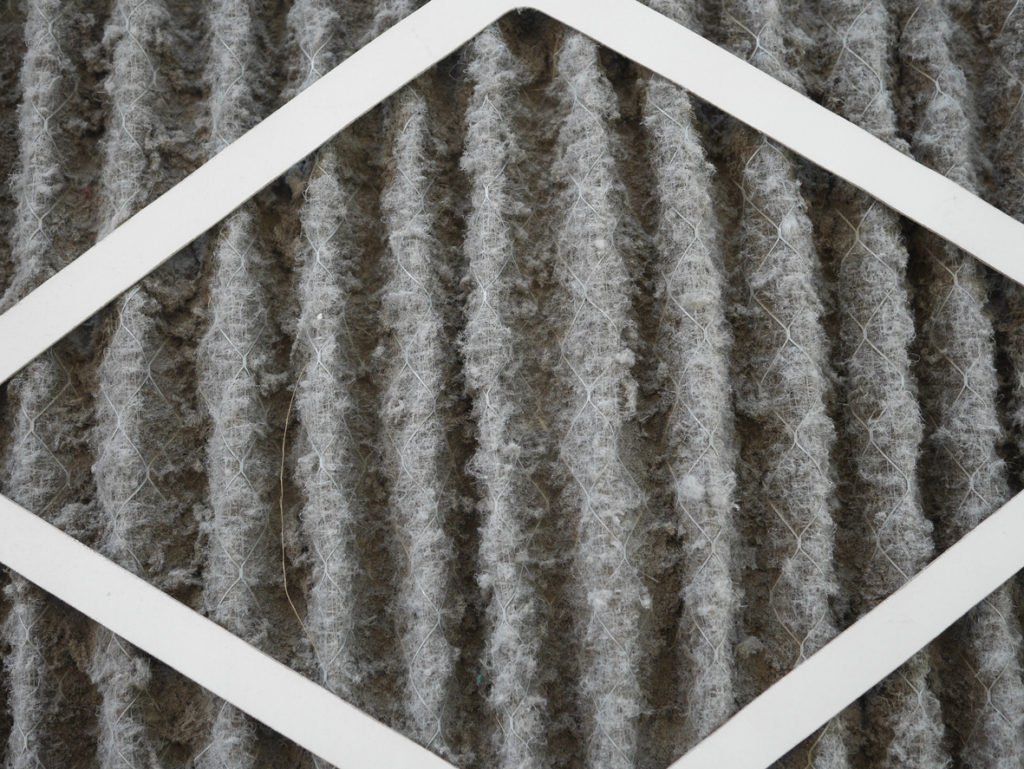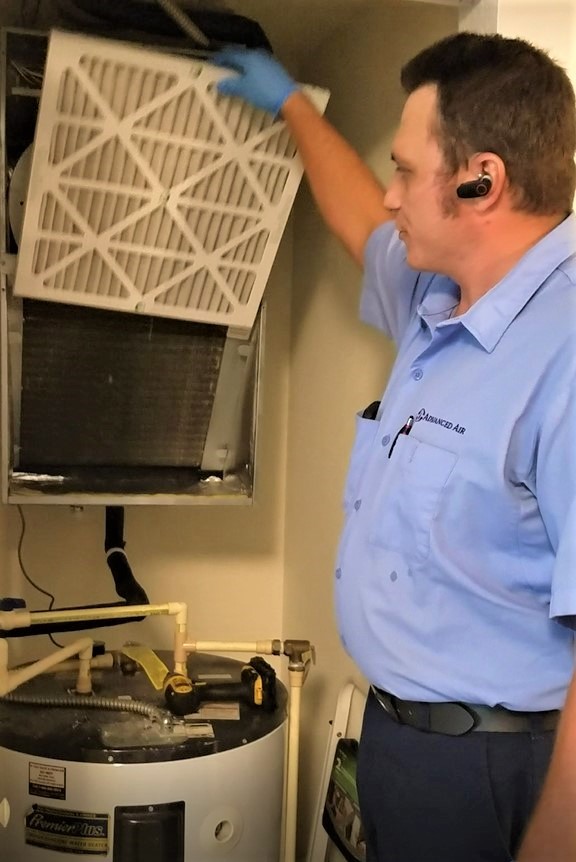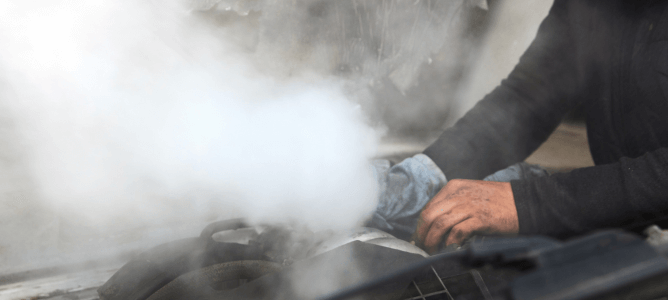Air purifiers can overheat for several reasons. Most often, it’s due to airflow issues or electrical problems.
Understanding why your air purifier overheats is crucial. An overheating air purifier is not only annoying but can also be a safety hazard. Knowing the reasons behind this issue can help you fix it quickly and keep your home safe.
In this post, we’ll explore common causes and provide helpful tips to prevent overheating. So, let’s dive in and find out what might be causing your air purifier to overheat.

Credit: www.griffithenergyservices.com
Common Causes
Air purifiers are essential for maintaining clean indoor air. But, an overheating air purifier can be a major concern. Understanding the common causes can help you prevent this issue and keep your device running smoothly.
Blocked Filters
Blocked filters are a common cause of overheating in air purifiers. When filters clog with dust and debris, airflow reduces. This forces the motor to work harder, generating excess heat. Regularly check and replace your filters to avoid this problem.
Motor Issues
Motor issues can also lead to overheating. A faulty or worn-out motor may struggle to function properly. This can cause it to overheat. If you notice strange noises or reduced performance, inspect the motor. Addressing motor problems promptly can prevent further damage.
Identifying Symptoms
An air purifier is essential for maintaining clean air in your home. But if it overheats, it can be frustrating and worrying. Identifying symptoms of overheating early can prevent further damage and ensure your air purifier works efficiently.
Unusual Noises
One sign your air purifier might be overheating is unusual noises. If you hear grinding, buzzing, or clicking sounds, it could indicate internal problems.
These noises often come from the fan motor struggling to operate. When the motor overheats, it works harder than usual, producing strange sounds. Pay attention to these noises as they can signal an impending breakdown.
Burning Smell
Another symptom of an overheating air purifier is a burning smell. This smell is a clear sign that something is wrong inside the unit.
The burning odor usually comes from overheating electrical components or a melting plastic part. If you detect this smell, turn off the air purifier immediately. Continuing to use it can cause more damage or even pose a fire hazard.
| Symptom | Possible Cause |
|---|---|
| Unusual Noises | Overheating motor, fan issues |
| Burning Smell | Electrical component failure, melting plastic |
Cleaning The Filters
Cleaning the filters in your air purifier is crucial to prevent overheating. When filters are clogged with dust, the device works harder. This extra effort can cause it to overheat. Regular maintenance of the filters helps keep your air purifier running smoothly.
Removing Dust
First, turn off and unplug your air purifier. Carefully remove the filter. Use a soft brush or vacuum cleaner to remove dust. Make sure to clean all areas of the filter. Dust can hide in tiny spaces. This simple step can improve your air purifier’s efficiency.
Replacing Worn Filters
Filters wear out over time. They lose their ability to trap dust and pollutants. Check your air purifier’s manual for the recommended replacement schedule. Typically, filters need replacing every few months. Install a new filter if the old one looks dirty or damaged. This helps prevent the device from overheating.
Inspecting The Motor
Inspecting the motor of your air purifier is crucial to prevent overheating. A faulty motor can cause the device to work harder than necessary, leading to overheating and potential damage. Regular inspection ensures the motor is in good working condition and helps maintain the longevity of your air purifier.
Checking For Wear
Begin by checking for signs of wear on the motor. Look for any frayed wires, burnt smells, or unusual noises. These can indicate that the motor is under stress and may overheat soon. Ensure all connections are tight and there are no visible damages to the motor components.
If you notice any of these signs, it might be time to replace the worn parts. This can prevent further damage and keep the air purifier running efficiently.
Lubricating Parts
Regular lubrication of the motor parts can also prevent overheating. Use an appropriate lubricant for the motor bearings and moving parts. This reduces friction and ensures the motor runs smoothly.
Follow these steps to lubricate the motor:
- Turn off and unplug the air purifier.
- Locate the motor and identify the moving parts.
- Apply a small amount of lubricant to the bearings and other moving parts.
- Rotate the parts manually to ensure even distribution.
- Wipe away any excess lubricant to avoid build-up.
Regular lubrication helps the motor run more efficiently and reduces the risk of overheating.
Ensuring Proper Ventilation
An air purifier needs proper ventilation to work efficiently. Lack of airflow can cause the device to overheat. This can lead to malfunctioning and reduced lifespan. By ensuring adequate ventilation, you can keep your air purifier running smoothly.
Positioning Tips
Place your air purifier in a spot where air can flow freely. Avoid placing it near walls or corners. This ensures that the purifier can draw in and expel air without restrictions. The ideal spot is an open area in the room.
Consider the height at which you place your air purifier. Placing it on a table or a stand can improve its efficiency. This allows better circulation of air throughout the room.
Avoiding Obstructions
Keep the area around the air purifier clear of obstructions. Avoid placing objects like furniture, curtains, or plants near the device. These can block the air vents and restrict airflow, causing the purifier to overheat.
- Ensure at least a few feet of space around the device.
- Regularly check for and remove any dust buildup on and around the purifier.
- Make sure the air intake and output vents are not blocked.
Following these simple steps can greatly reduce the risk of overheating. This ensures your air purifier runs efficiently and effectively.

Credit: advanced-air.com
Electrical Issues
Air purifiers can overheat due to various electrical issues. These issues can damage the device and pose safety risks. Understanding the common electrical problems can help you prevent overheating.
Faulty Wiring
Faulty wiring is a common cause of overheating in air purifiers. Worn-out wires or poor connections can lead to increased resistance. This resistance generates extra heat, which can cause the purifier to overheat.
To check for faulty wiring, inspect the power cord and internal wires. Look for frayed wires, loose connections, or burnt marks. If you see any of these signs, consider getting a professional to repair or replace the wiring.
Power Surges
Power surges are sudden spikes in voltage. These surges can damage electrical components in your air purifier. They can cause the device to overheat and even stop working.
To protect your air purifier from power surges, use a surge protector. This device can help manage sudden spikes in voltage. It can also extend the lifespan of your air purifier.
Here’s a simple table to summarize the causes and solutions for electrical issues:
| Electrical Issue | Cause | Solution |
|---|---|---|
| Faulty Wiring | Worn-out wires, poor connections | Inspect and repair wiring |
| Power Surges | Sudden voltage spikes | Use a surge protector |
By addressing these electrical issues, you can prevent your air purifier from overheating. Regular maintenance and using protective devices can go a long way.
Using The Right Settings
Using your air purifier correctly can help prevent overheating issues. Adjusting the settings to match your needs ensures optimal performance and longevity. Let’s explore how to do this effectively.
Adjusting Fan Speed
Fan speed affects how hard your air purifier works. Running it at maximum speed constantly can cause overheating. Consider these tips:
- Low Speed: Use this setting for regular, everyday air purification.
- Medium Speed: Suitable for moderate pollution levels or larger rooms.
- High Speed: Use for short periods, such as after cooking or cleaning.
Adjusting the fan speed based on the situation can prevent your air purifier from overworking. This helps maintain a balanced temperature.
Operating Modes
Air purifiers often come with various operating modes. These modes can influence the unit’s performance and temperature. Here are some common modes:
| Mode | Usage |
|---|---|
| Auto Mode | Adjusts speed based on air quality. Efficient for long-term use. |
| Sleep Mode | Runs quietly at low speed. Ideal for nighttime. |
| Turbo Mode | High power for quick purification. Use sparingly to avoid overheating. |
Choosing the right mode for the right situation is key. It helps avoid unnecessary strain on your air purifier.
Be mindful of your air purifier settings. This can greatly reduce the risk of overheating and extend the life of your device.

Credit: nigen.com
Preventative Maintenance
Preventative maintenance is key to keeping your air purifier in top shape. Regular care can prevent overheating issues. It ensures that your device works efficiently and lasts longer. Let’s explore some essential steps for maintaining your air purifier.
Regular Inspections
Inspect your air purifier regularly. Check for dust buildup on filters and internal parts. Dust can block airflow and cause the purifier to overheat. Clean or replace filters as needed. Keep the surrounding area free of obstructions.
Look for any signs of wear and tear. Broken or damaged parts can affect performance. Make sure the power cord is in good condition. A frayed cord can be a fire hazard.
Professional Servicing
Consider professional servicing for your air purifier. Experts can identify and fix issues that you might miss. They can clean the internal parts thoroughly. Regular servicing ensures that your device works efficiently.
Schedule a professional check-up at least once a year. This can prevent major problems from developing. It also gives you peace of mind, knowing your air purifier is in good hands.
Frequently Asked Questions
Why Is My Air Purifier Hot?
Your air purifier may overheat due to blocked filters. Clean or replace the filters regularly to ensure proper airflow.
Can A Dirty Filter Cause Overheating?
Yes, a dirty filter can restrict airflow. This makes the motor work harder, causing it to overheat. Clean filters often.
How Often Should I Clean My Air Purifier?
Clean the filters every month. Follow the manufacturer’s instructions for a more specific cleaning schedule.
Is It Normal For Air Purifiers To Get Warm?
It’s normal for air purifiers to get slightly warm. However, excessive heat indicates a problem. Check filters and airflow.
Conclusion
To stop your air purifier from overheating, follow these simple steps. Clean the filters regularly. Ensure proper ventilation around the device. Check for any blockages. Keep an eye on the fan and motor. Address any issues promptly. By doing so, you ensure your air purifier runs smoothly.
This leads to better air quality and a longer lifespan for your device. Remember, a well-maintained air purifier keeps your home fresh and healthy.
Rakib Sarwar is a Registered Pharmacist and a reputed health and wellness blogger. He has a great interest in Air purifiers.
